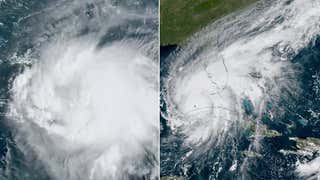

US
°C





The most deadly animal known to man isn't a poisonous snake, a vicious reptile or a big game cat; it's the lowly mosquito. This killer is most prevalent and dangerous in tropical regions, but lives on every continent on the planet and in almost every country in the world. Alarmingly enough, this animal is most likely to attack you while you sleep. How can you protect yourself?
An array of creatures feed on humans and in doing so pass on dangerous diseases. These are known as disease vectors, and the most prevalent of them is the mosquito. Because of its ability to quickly spread Malaria, the mosquito is the most deadly animal known to man. However, with several simple precautions you can minimize the risk of being bitten and having to your dream holiday short.
The mosquito can pass on several diseases, the most common of which is Malaria. Malaria is widespread throughout the tropics and subtropics, except at latitude, while other diseases such as Dengue, Haemorrhagic Fever, Elephantiasis, Yellow Fever, Bilharzia, River Blindness and Sleeping Sickness occur throughout Africa and parts of Asia. Malaria has largely disappeared from the European continent, although cases of Malaria have begun to reappear in Turkey and other Mediterranean countries.
Mosquito bites itch most for people who are new to an area. After about six months of being bitten by the same species of mosquito, an immunity to the bites develops and the bites may hardly raise a bump. This immunity can pose an even larger threat, however, as people may incorrectly assume that if they aren't feeling the bites that they aren't being bitten. Don't be mistaken: if your skin is exposed to the bites of a mosquito between dawn and dusk, you risk contracting Malaria in most of the world.
Here are some simple precautions you can take when you travel abroad:
Avoid standing water
Stay away from standing water, as mosquitoes breed in it. Avoid staying in hostels, hotels, or campgrounds near standing water, the most dangerous of which is black and stagnant.
Mosquito nets are a must
If traveling in a high-risk country, always sleep inside a mosquito net. The most effective nets are those that have been impregnated with permethrin, an insecticide. These will kill any mosquito which touches it, thus avoiding the problem of rolling against it in your sleep and being bitten by a mosquito landing on the other side of the net.
Hot plates are effective
Electric hot-plates, which heat up insecticide-impregnated vaporizing mats, can knock down or repel mosquitoes. If you are traveling in an area without electricity, try burning incense coils, which also are highly effective at repelling mosquitoes.
Insect repellents
Insect repellents are also effective for repelling mosquitoes as well as other biting insects. Always buy a repellent that contains DEET (diethyltoluamide), but be careful as it dissolves plastic and can ruin synthetic materials such as backpacks, sleeping bags and tents.
Soaking a bit of cloth in DEET and tying it around your ankle can deter those mosquitoes that attack at ankle level. However, be warned that when mosquito density levels are high, most repellents will act only as deterrents and chances are you may still be bitten.
Long pants & sleeves
Wear long pants and long-sleeved shirts, especially as sunset nears, as this is when mosquitoes are most active. This leaves only a small amount of skin to be doused in repellent.
Avoid perforumes
Lastly, avoid wearing scented perfumes or shiny jewelry as this attracts mosquitoes.
People contract malaria after being bitten by a mosquito that has previously bitten someone with Malaria. Despite concentrated efforts by health organizations to wipe out the spread of this disease, it remains the highest cause of deaths to humans in the world. Consult with your doctor before visiting a country where Malaria is prevalent, as there are several choices for anti-malarial drugs. Most importantly, follow the precautions above and enjoy a safe and healthy holiday!












